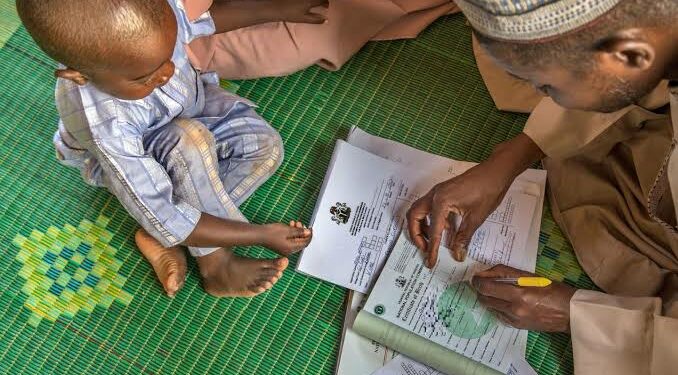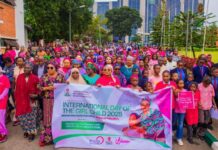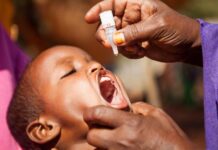The United Nations Children’s Fund, UNICEF has revealed that 43 per cent of Nigerian children were not captured in the birth registration and legally become invisible.
Read Also: Child Rights does not include demands for what parents can not afford
UNICEF said according to the Multiple Indicator Cluster Survey (MICS) 2021, 57. 3 per cent of the births of children under five were registered at the national level.
The UNICEF Chief of Kano Field Office, Mr. Rahama Farah disclosed this during a media dialogue organized by the fund in collaboration with the National Population Commission, NPC and National Orientation Agency, NOA in Kano.
Farah who decried that despite millions of children given birth to annually in the country, said birth registration uptake in the country has been less than optimal, depriving Nigerian children the rights recognized by both the UN and the Government of Nigeria and so they legally becomes invisible and does not exist.
According to him, “based on the Multiple Indicator Cluster Survey (MICS) 2021, 54.6 per cent of the births of children under five are registered in Kano State, compared to 57. 3 per cent at the national level. For the states of Katsina and Jigawa also supported by the UNICEF Kano Field Office, under-five birth Registration is as low as 23.6 percent in Jigawa, and 67 per cent, in Katsina state.
“The MICS 2021 survey also found that 2 out of every 3 mothers and caregivers of children aged below five years, whose births were not registered, did not know how to register births. The MICS 2021 puts percentage of children under 5 whose births are registered as ranging from as high as 89 per cent for the richest wealth quintile, to as low as 33 per cent for the poorest wealth quintile.
“According to the United Nations Department of Economic and Social Affairs, Population Division, World Population Prospects 2019 (Online Edition) about 20,000 children are born every day in Nigeria, and the 2023 projected population for children under-1 is 7,465,417: and 35,597,131 for children under-5. This requires registration and certification of millions of children annually. If Nigeria must meet the SDG 16.9, it is imperative that concerted efforts to deal with outstanding barriers that have restricted universal birth registration coverage must be addressed.
“Addressing the challenge of inadequate or lack of awareness of the importance of Birth Registration, and where caregivers and mothers can go to register the births of their children, is therefore very urgent. It is important to communicate the innovative, digital birth registration procedure to motivate caregivers, parents, the general public, and everyone to embrace Birth Registration,” Farah said.
The UNICEF Chief said it has deployed several measures to support the government to increase the birth registration in the state.
“To ensure that the birth of every child Nigeria is registered, UNICEF is supporting the Government to strengthen coverage of birth registration during immunization services in health facilities, capturing children who are under one year of age as soon as they are born, during Maternal and New-born Child Health Weeks (MNCHWs), and through Supplemental Immunization Activities, using digitalized processes.
“In 2023, UNICEF is supporting the efforts of multi-sectoral partners in scaling up birth registration coverage in Nigeria and investing in safe and innovative technology to facilitate birth registration in Nigeria. This will contribute to timely, accurate and permanent records of births in Nigeria,” Farah stated.
Earlier, the State Director, National Population Commission (NPC), Alh. Ismaila Hassan Dogo disclosed that the commission targeted one million children on its electronic birth registration in Kano before the end of 2023.
The director who pointed out the frantic efforts made by the commission to meet it’s target with 236 registration centre across the 44 local government areas of the state, he highlighted it challenges to include inadequate manpower, lack of awareness among the residents among others.
The UNiCEF Communication Specialist, Mr. Samuel Kaalu, however, said the essence of the media dialogue was to keep journalists abreast on the significance of e-birth registration in order to help it educate the residents on the significance of the exercise and the need to register their children with the National Population Commission (NPC) recognized under law to carry out the exercise.

















